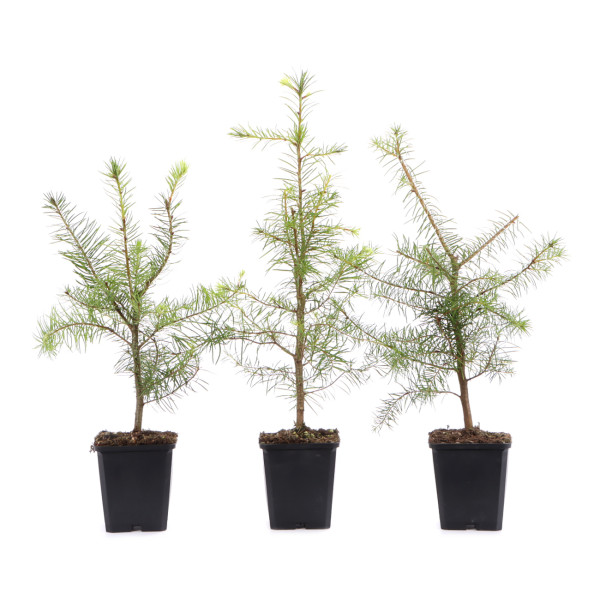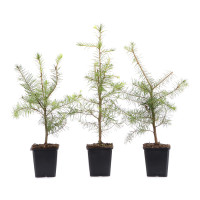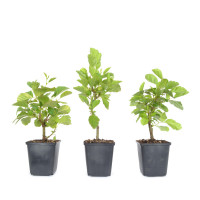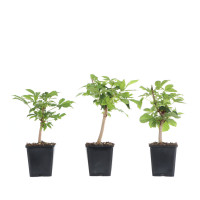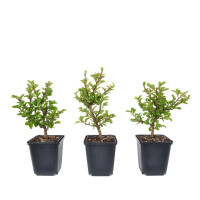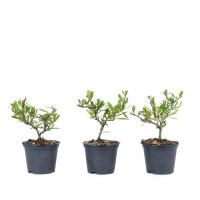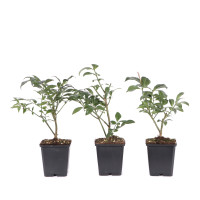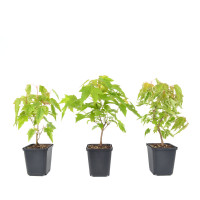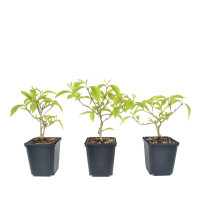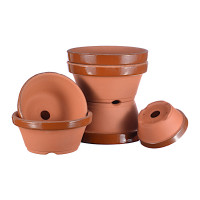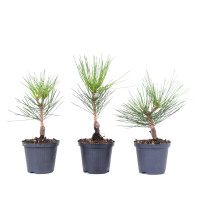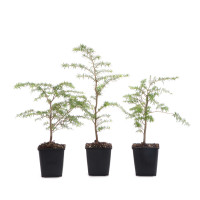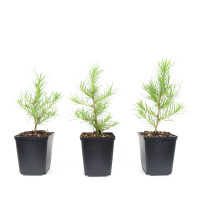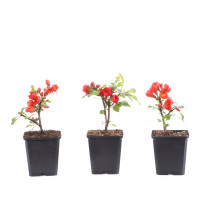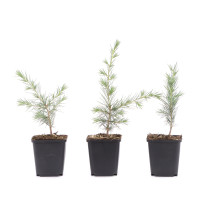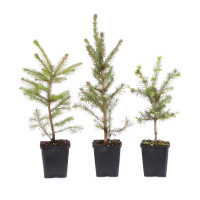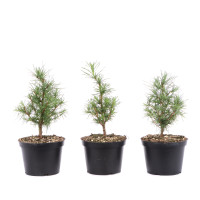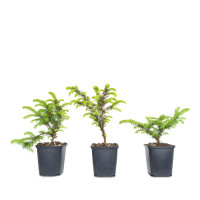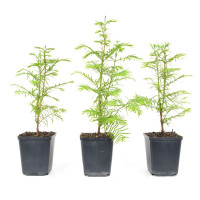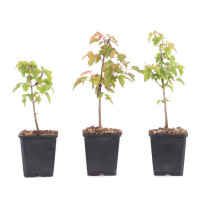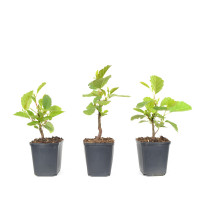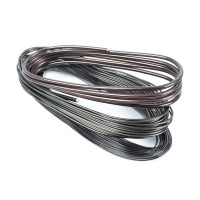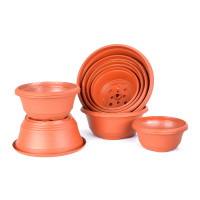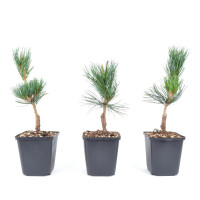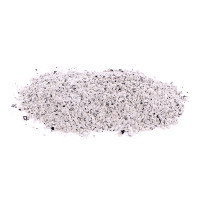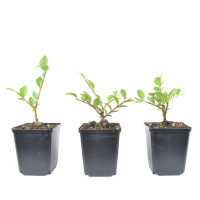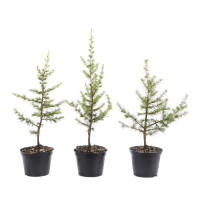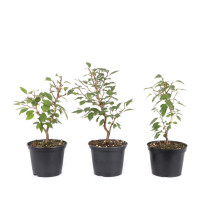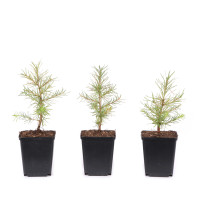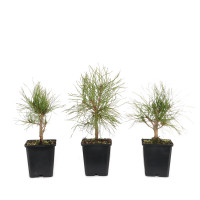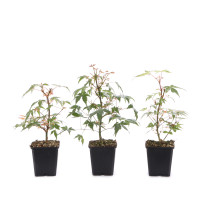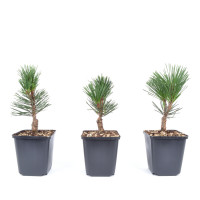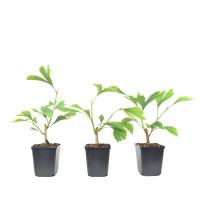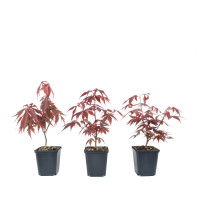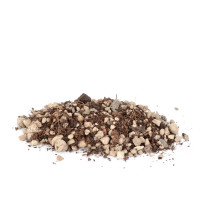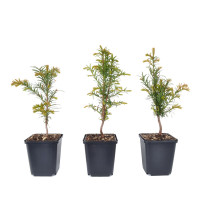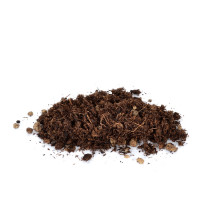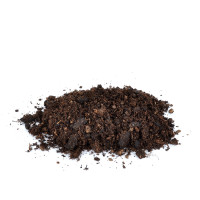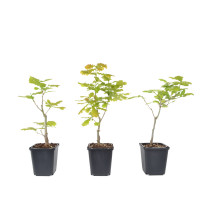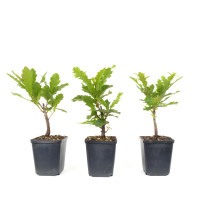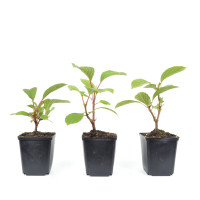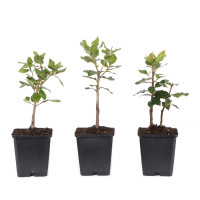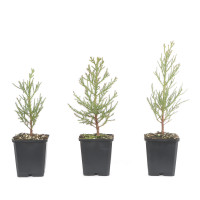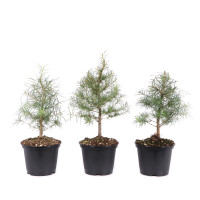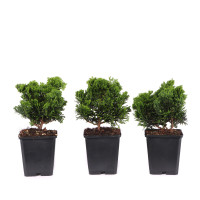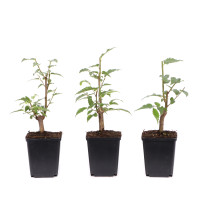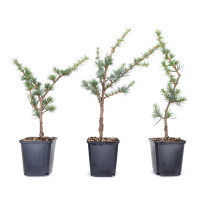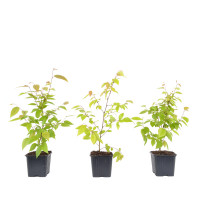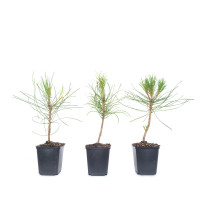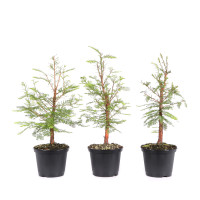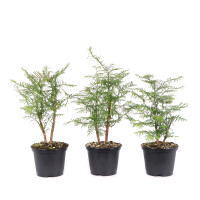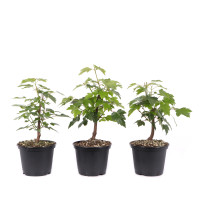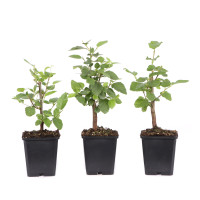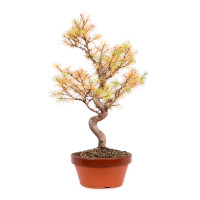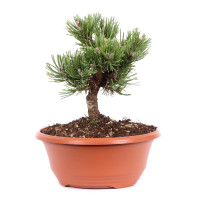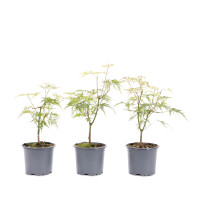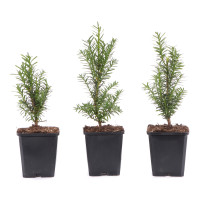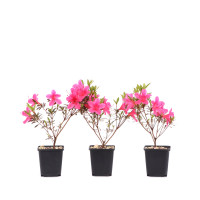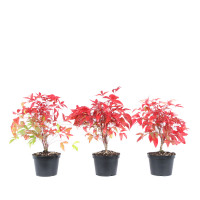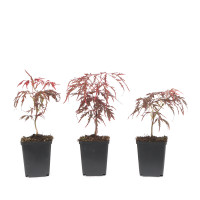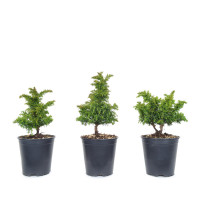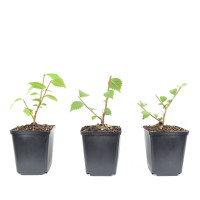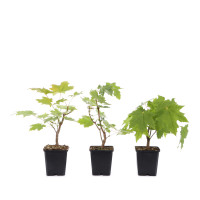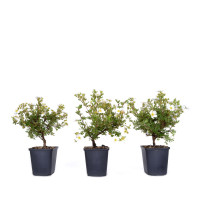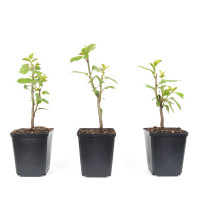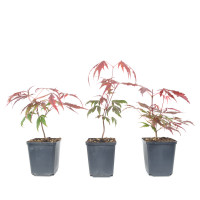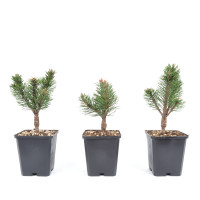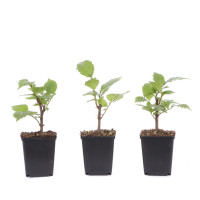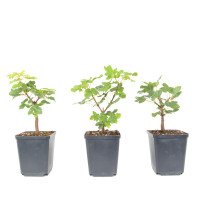- Order number: 1921-03-T
- Height: ca. 20 - 25 cm
- Foliage: evergreen
- Bonsai Pot: plastic pot
- Age: 3 years
- Origin: Germany
- Product contents: You will get a similar plant
Pseudotsuga menziesii var. menziesii - Coastal Douglas Fir
General:
Douglas fir is native to western North America and has a wide range here (Canada to Mexico). However, two different varieties of Douglas fir are found here. The Coastal Douglas Fir (var. menziesii, syn. var. viridis) grows mainly along the northern Pacific coast and the Blue or Inland Douglas Fir (var. glauca) from the Rocky Mountains to Mexico. Coastal Douglas fir grows much thicker and older compared to inland Douglas fir. In the Pacific cloud forests it reaches a height of up to 80 meters and a trunk diameter of up to 2 meters. This makes the Douglas fir one of the tallest tree species on earth. Their growth form is narrow conical at the beginning like a spruce. Later, the crown develops into a broad spreading tree with horizontal branches. The evergreen needles of the coastal Douglas fir are greenish and have a pleasant orange fragrance when crushed. The bark of Douglas fir is covered with the typical resin bumps when young. With age, the bark becomes corky, deeply grooved and very thick. The Douglas fir is of great importance in terms of forestry and is also increasingly found in Europe and Germany as an important component of mixed forests.
Care as a bonsai:
The Douglas fir is very robust and vigorous. It also has a good and dense budding. This leads to fine branching when pruned regularly. The needles are also quite short and thus small handsome trees can be formed quickly. When young, a Douglas fir bonsai also forms the species-typical resin bumps on the trunk. These are often close together and give the plant a special appearance. Last but not least, when pruning, you are treated to a fruity orange scent that the plant gives off.
The Douglas fir bonsai should be fertilized regularly during the growing season and watered as needed. Waterlogging should be avoided. The plant prefers a bright and warm location, but is also tolerant of shade. Douglas firs are frost hardy, but they should be protected from desiccation and late frosts in the spring.

